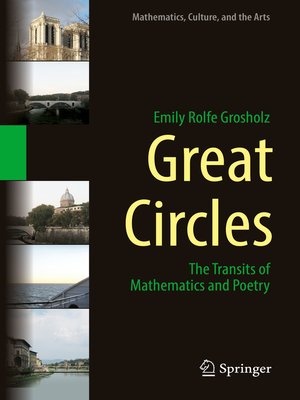Great Circles
ebook ∣ The Transits of Mathematics and Poetry · Mathematics, Culture, and the Arts
By Emily Rolfe Grosholz

Sign up to save your library
With an OverDrive account, you can save your favorite libraries for at-a-glance information about availability. Find out more about OverDrive accounts.
Find this title in Libby, the library reading app by OverDrive.



Search for a digital library with this title
Title found at these libraries:
| Loading... |
This volume explores the interaction of poetry and mathematics by looking at analogies that link them. The form that distinguishes poetry from prose has mathematical structure (lifting language above the flow of time), as do the thoughtful ways in which poets bring the infinite into relation with the finite. The history of mathematics exhibits a dramatic narrative inspired by a kind of troping, as metaphor opens, metonymy and synecdoche elaborate, and irony closes off or shifts the growth of mathematical knowledge.
The first part of the book is autobiographical, following the author through her discovery of these analogies, revealed by music, architecture, science fiction, philosophy, and the study of mathematics and poetry. The second part focuses on geometry, the circle and square, launching us from Shakespeare to Housman, from Euclid to Leibniz. The third part explores the study of dynamics, inertial motion and transcendental functions, from Descartes to Newton, and in 20th c. poetry. The final part contemplates infinity, as it emerges in modern set theory and topology, and in contemporary poems, including narrative poems about modern cosmology.





